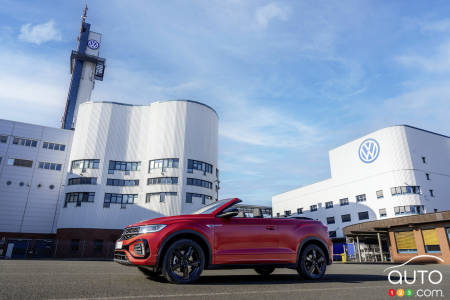Volkswagen is reported to be considering closing two of its assembly plants in Germany. The company needs to cut costs and is considering radical measures.
This would certainly count as radical. Volkswagen hasn't closed a plant in Germany since 1937, on the eve of the Second World War.
Autocar reported this week that the auto giant is looking at the possibility of closing its Dresden and Osnabrück plants. The latter currently manufactures the Porsche 718 Boxster and Cayman, models that are nearing the end of their careers in their current gasoline-engine configuration.
However, the 105-acre site also manufactures the T-Roc convertible, which remains popular in Europe. On the other hand, it has always been a niche vehicle, and VW sold just 6,110 units of it in the first half of 2024.

The Dresden plant, better known as the Transparent Plant, is considerably smaller. It opened its doors in 2002 to build the Phaeton, and it currently manufactures the ID.3.
Volkswagen is also looking at other cost-cutting steps. The company's job security program is said to be under scrutiny; established in 1994, it was meant to protect jobs at VW until the end of 2029. The German trade union IG Metall is paying close attention to that and says it’s ready to fight. Volkswagen CEO Thomas Schafer told German media that the situation is “extremely tense and cannot be overcome by simple cost-cutting measures”.
Ironically, the automaker’s sales have been healthy so far this year. In Europe, VW has registered a 1.9 percent increase over the first half of 2023, while in the U.S., a crucial market for Volkswagen, the increase is 3 percent compared to 2023. In South America, the increase was 15.4 percent.
Only in Asia did the VW Group record a decline, of 8.2 percent. This is important, because in China in particular, the popularity of local models from companies like BYD (Build Your Dream) is hurting Volkswagen.
It’s also important to keep in mind the brand's massive investments in electrification in recent years, totaling billions announced for the construction of electric platforms, factories and so on. Recently, Volkswagen invested $5 billion in Rivian. All at a time when many markets have seen a slowdown in the anticipated growth of electric vehicle sales.
In the first half of 2024, Volkswagen saw its sales of EVs decline by 15.2 percent in Europe, and 15.4 percent in the U.S.





